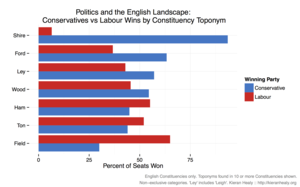-- Dr. Michael J. Neely, the medical director at NY Sports Medicine and Physical Therapy, based in Manhattan.
... And leads to branded consumerism:
all the accessories and lifestyle brands that now cater to him and other triathletes. They can now buy TriSwim's shampoo to remove chlorine, and sports drinks like Hammer Nutrition Heed, which is sold on Web sites like One Tri. There are aerodynamic helmets and sunglasses made for triathlons, as well as wet suits and tri-specific running sneakers made by K-Swiss, Asics, Zoots and Newton.
At Placid Planet, a bicycle and triathlon shop in Lake Placid, N.Y., the new must-have accessories are Zipp wheels and compression tights. "Zipp wheels are an aerodynamic carbon wheel that increase speed by reducing drag on the wheel," said Kenny Boettger, the owner. Compression tights and socks, he said, help athletes recirculate oxygen and blood. "This is the big thing right now and it works," he said.
There are also magazines like Lava, which began publishing in August and offers testosterone-fueled articles and profiles that appeal to men who dream about being Ironmen. With page after page of Lycra, equipment reviews and training tips, the magazine is geared for "hardcore triathletes who want to get right inside the fiery molten center of triathlon," according to its mission statement.
Lava's macho-man mantra is simple. "Forty is the new 20," said John Duke, who publishes the monthly magazine in San Diego. "And in triathletes, 40 isn't old. The median age of the sport is 41."
Good thing, too, since triathlons don't come cheap. "Forty-somethings are also the ones who can afford the sport," said Scott Berlinger, the head coach of Full Throttle, a 120-man triathlon team that is based out of the Chelsea Piers in Manhattan. "I tell my athletes everything costs $100 -- shoes, helmets, glasses -- and the big purchase is your bike."
A bicycle -- the tri-world equivalent of the red sports car -- can cost anywhere from several hundred dollars to more than $10,000. After the bike and the chiropractor bills, the biggest item is individual coaching, which can easily run $100 an hour.
"Triathletes are a discerning group of alpha consumers, with $175,000 average salaries," said Erik Vervloet, vice president for sports marketing at K-Swiss, which jumped into the tri-market three years ago. "The average Ironman spends $22,000 a year on the sport."
The high price is an issue, particularly for spouses. "I still argue with the wife about the costs," said Mr. Goodman, the triathlete from Stamford. His gear includes a $5,000 Cervelo bicycle, a $3,000 Pinarello bicycle, Xterra Vector Pro2 wet suits, Izumi Tri Fly 111 bike shoes and a Lazer Tardiz helmet.
But his wife, Amy, eventually came around. "At first it was a bit hard for me to swallow," said Ms. Goodman, 32, who is attending graduate school in the field of public health, "but when I saw that the bike wasn't going to hang on the wall, I thought, in terms of self-indulgences, this is one of the best things he could be doing."

